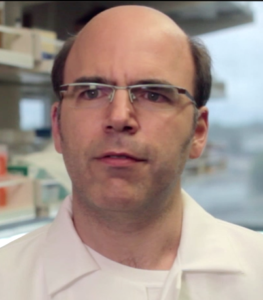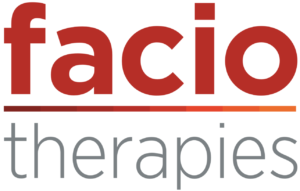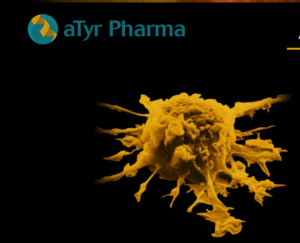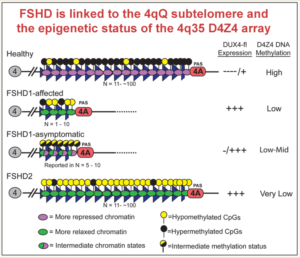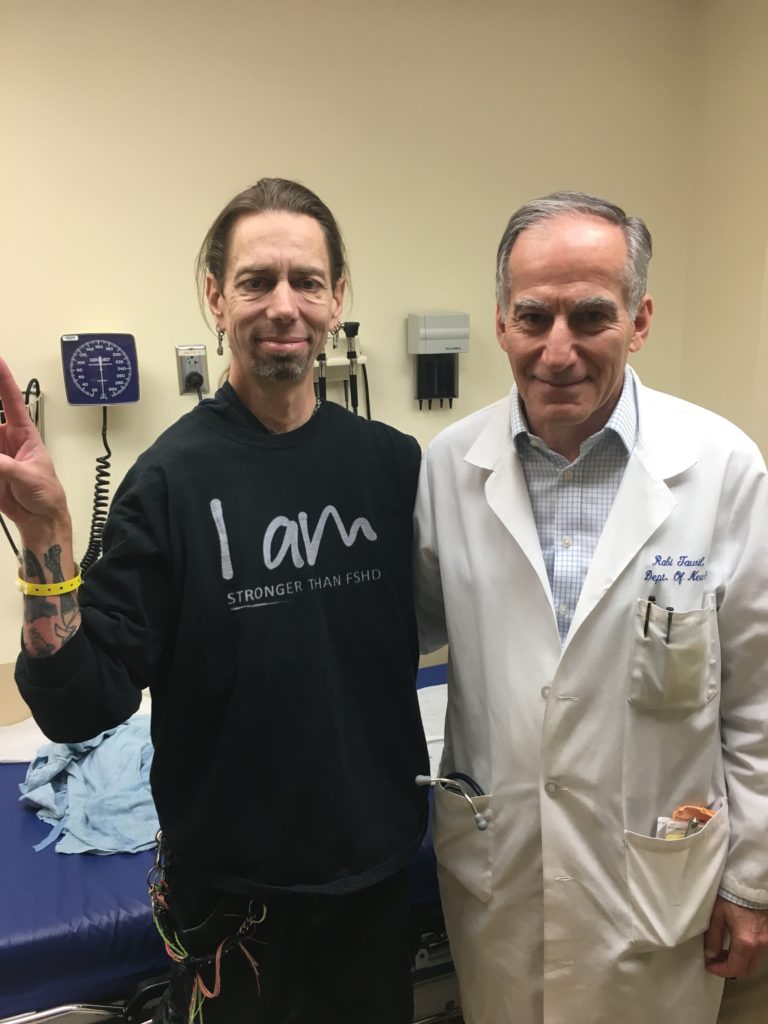
To crack the code of FSHD, patients are absolutely essential
All of the breakthroughs—the discovery of the genetic causes, understanding why some patients vary so greatly in the severity of their symptoms, teasing out the biochemical pathways that could point to future treatments—were made because patients stepped up to the plate.
Too often, we hear patients say they’ll volunteer when there’s a treatment. But we will never get to a treatment unless patients participate in fundamental research now. FSHD is uniquely human, so no laboratory mouse can ever fully model the disease. The genetic “package” that causes FSHD is found only in people. We owe an enormous debt to the patients who give DNA samples. Who submit to long interviews and exhausting physical tests. Allow a surgeon to cut out a small muscle sample. Who fight claustrophobia to lie in the narrow bore of an MRI machine.
Equally important are patients’ family members, both affected and unaffected, who provide the best experimental controls because of their shared genetic and environmental backgrounds. A parent or sibling who has very mild symptoms may hold the key to understanding the factors that protect against the full-blown development of FSHD symptoms in a more severely affected family member.
We are more hopeful today than ever before that a treatment is within sight. We cannot guarantee when that treatment will arrive, but here’s one thing we guarantee: If you volunteer for research, your participation will without question help move us a step closer to that day.
Scientific Overview of FSHD
Read the latest on wikipedia
Glossary of Scientific Terms
FSH Society funds genome editing project
Genome Editing, or the ability to make designer changes to the human genome, was once firmly in the realm of science fiction, but recent discoveries have changed that. Although it… Read More »
Facio partners with Evotec and initiates FSHD drug discovery program
From the Facio Therapies website Facio Therapies and Evotec have entered into an agreement aimed at the identification of compounds showing activity as a potential treatment to stop the progression… Read More »
aTyr Receives U.S. FDA Orphan Designation for FSHD drug
San Diego-based aTyr Pharma (“aTyr”), a biotherapeutics company engaged in the discovery and development of Physiocrine-based therapeutics to address rare diseases, announced today that Resolaris™ has been granted Orphan Drug Designation… Read More »
The very model of a modern epigenetic disease
Yes, we’re talking about FSHD On those rare occasions (such as the FSHD Connect meeting) when large numbers of individuals with FSHD gather in one place, one can’t help but… Read More »



